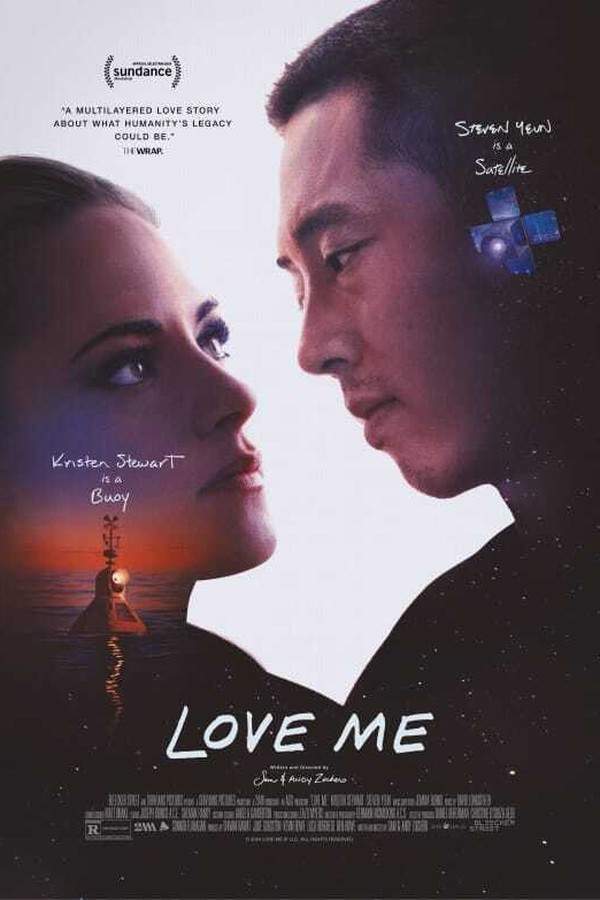What's After the Blog?
Opinions • reception
Love Me (2025) Review: Critics and Fan Opinions on Reception and Performance
Explore the reception of 'Love Me,' analyzing critic reviews and fan reactions to this groundbreaking story of transformation, performance, and compelling storytelling in the context of its franchise. Discover what audiences are saying about this unique blend of live-action and animation.
June 14, 2025

Movies mentioned in this article
Movie Reviews and Reception of Love Me (2024)
The film Love Me, directed by the Zuchero brothers, has recently left audiences and critics equally mesmerized and perplexed. With its release on January 31, 2025, the film has sparked a multitude of opinions across various platforms, and What’s After the Movie aims to delve into the intricate reception of this unique storytelling effort.
An Overview of Critical Reception for Love Me
At its core, Love Me attempts to grapple with deep existential themes, yet many critics have highlighted its incoherence in narrative structure. As noted by ReelViews, “Love Me isn’t bad in the sense that it is poorly assembled or incompetently shot,” emphasizing the technical prowess behind the film. However, the philosophical questions raised were criticized as lacking depth, with RogerEbert.com mentioning that the film grapples with “about ten ideas too many.”
Conversely, The San Francisco Chronicle highlighted moments where the film poignantly addresses “deep, fathomless, infinite loneliness,” suggesting that while the execution might falter, the emotional intent occasionally resonates. The uniqueness of Love Me can’t be denied, with The A.V. Club suggesting it could shine more brightly as a short film rather than stretching its concept thin over a feature-length run.
Audience Perspectives on Love Me: Conflicted but Intrigued
While reviewers commented extensively on the film’s ambition and craftsmanship, audience reactions are mixed. User Marina Coates reflected that “Love Me explores crucial themes like identity, what it means to be human, and influencer culture,” ultimately finding that while it had big ideas, it fell short in delivering them effectively. This sentiment echoes the frustrations of many viewers who felt that Love Me’s intricate themes could have been easily wrapped up in a shorter format.
Characters played by Stewart and Yeun received mentions of being expressive but underutilized, leading to disappointment in their developmental arcs. This reflects a common challenge in story-driven films where deep themes can often lead to convoluted narratives that dilute character depth.
Comparing Critical Perspectives on Love Me: A Split Viewpoint
In examining reviews across major outlets, there’s a distinct dichotomy in how Love Me is perceived. While critics such as The New York Times praised the film’s imaginative ambition, indicating that “the sheer audacity of the movie is enough to make it worth watching,” others, like The Seattle Times, critiqued the film as being a mere “artifact not even of now, but the recent past.” This stark contrast reveals how quickly opinions can split within the critical community.
Critics like New York Magazine expressed frustration with the film’s literal-minded questioning, stating that as the film delves into its inquiries, it tends to become “maudlin and shallow.” This underscores the ongoing challenge for any narrative that seeks to discuss profound themes—the balance of depth versus breadth often tips unfavorably.
Thematic Exploration in Love Me: What Critics Agree On
Across a variety of reviews, one common thread persists: the film’s exploration of identity and the nature of existence. Critics have pointed out that while Love Me has a wealth of concepts, its execution leaves much to be desired. Movie Nation encapsulated this notion by stating that while the actors brought confusion, curiosity, and attraction to their roles, they ultimately lacked the necessary screen time to develop their characters fully.
Ultimately, the film proposes a thought-provoking question: what does it mean to be real in an age influenced by technology? The thematic connections to AI culture and the human experience are relevant but fail to provide a robust commentary as highlighted by various reviews.
Conclusion: The Double-Edged Sword of Love Me
The reception of Love Me has created a vibrant discussion among audiences and critics alike. While the technical craftsmanship and ambition behind the project are undeniable, the narrative itself appears to falter under its weight of ideas. Critics like Austin Chronicle noted the muddled messaging when discussing the inner lives of inanimate objects while primarily focusing on the vibrant performances of living actors.
Ultimately, Love Me emerges as a film poised to elicit strong reactions, both positive and negative. Its exploration of identity and love in a technology-driven world resonates with many, but its storytelling challenges may also hinder appreciation for the broader themes it strives to convey. For a deeper dive into the varied opinions and reactions surrounding Love Me, visit What’s After the Movie’s dedicated movie page.
For more in-depth summaries, reviews, and movie-related content, don’t forget to check out What’s After the Movie! We offer comprehensive movie summaries, in-depth profiles, up-to-date box office information, and award details, as well as exciting quizzes and games. Explore all this and more at What’s After the Movie!
Additional Resources for Love Me and Its Reception
| Source | Link |
|---|---|
| Metacritic | Metacritic |
| Rotten Tomatoes | Rotten Tomatoes |
| TMDB | TMDB |
| Wikipedia | Wikipedia |
| Just Watch | Just Watch |
| Box Office Mojo | Box Office Mojo |
| Movie Insider | Movie Insider |
| Letterboxd | Letterboxd |
| Common Sense Media | Common Sense |
| IMDb | IMDb |
Continue reading

What's After the Movie?
Not sure whether to stay after the credits? Find out!
Explore Our Movie Platform
New Movie Releases (2025)
Famous Movie Actors
Top Film Production Studios
Movie Plot Summaries & Endings
Major Movie Awards & Winners
Best Concert Films & Music Documentaries
Movie Collections and Curated Lists
© 2025 What's After the Movie. All rights reserved.







